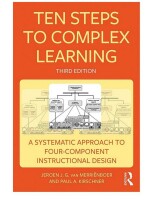Summary: Educational Psychology | 9781259922145 | John W Santrock
- This + 400k other summaries
- A unique study and practice tool
- Never study anything twice again
- Get the grades you hope for
- 100% sure, 100% understanding
Read the summary and the most important questions on Educational Psychology | 9781259922145 | John W. Santrock
-
4 Individual variations
-
4.1 Intelligence
This is a preview. There are 6 more flashcards available for chapter 4.1
Show more cards here -
How did you need to measure IQ according to Stern, and what concept from whom did he need to come to this measure?
He needed the concept of mental age from Binet
He measured IQ according to:
MA/CA x 100
(mental age / chronological age x 100) -
The current way of measuring IQ is different from the way Stern and Binet measured it. What is the difference and how is the new way called?
It is now measured on a scale of normal distribution, 100 being the average
It is called the Stanford-Binet scale -
What is the difference between the Wechsler scale of measuring intelligence and the Stanford-Binet scale?
The Wechsler scale does not only measure intelligence but has other subscales to measure what a child is weaker and better in -
What eight types of intelligence (or frames of mind) does Gardner argues there are?
- Verbal
- Mathematical
- Spatial
- Bodily-kinesthetic
- Musical
- Intrapersonal
- Interpersonal
- Naturalist
- Verbal
-
Who first developed the idea of an emotional intelligence?
Salovey and Mayer -
What are the main three points that critics have on the many forms of intelligence by Gardner and Sternberg (among others)?
- Not all skills they include are forms of intellicence
- There is a lack of research to proof these approaches
- The general concept of intelligence is already a reasonably good predictor of school and job performance
- Not all skills they include are forms of intellicence
-
Name the three controversies/issues related to intelligence
- The nature-nurture question
- The fairness with which intelligence testing applies across cultural and ethnic groups
- Whether students should be grouped according to ability --> intelligence test are an indicator of current performance rather than fixed potential
- The nature-nurture question
-
What are culture-fair tests?
Intelligence tests that are intended to be free of cultural bias -
What is within-class ability grouping?
Grouping students within a class to take into account differences in students' abilities -
What is a nongraded (cross-age) program?
A variation of between-class ability grouping in which students are grouped by their ability in particular subjects, regardless of their age or grade level
An example is the Joplin plan for instruction in reading
- Higher grades + faster learning
- Never study anything twice
- 100% sure, 100% understanding
Topics related to Summary: Educational Psychology
-
Individual variations - Learning and thinking styles
-
Individual variations - Personality and temperament
-
Sociocultural diversity - culture and ethnicity
-
Sociocultural diversity - Multicultural education
-
Sociocultural diversity - Gender
-
Learners who are exceptional - Children with disabilities
-
Learners who are exceptional - Educational issues involving children with disabilities
-
Complex cognitive processes - Thinking
-
Complex cognitive processes - Problem solving
































